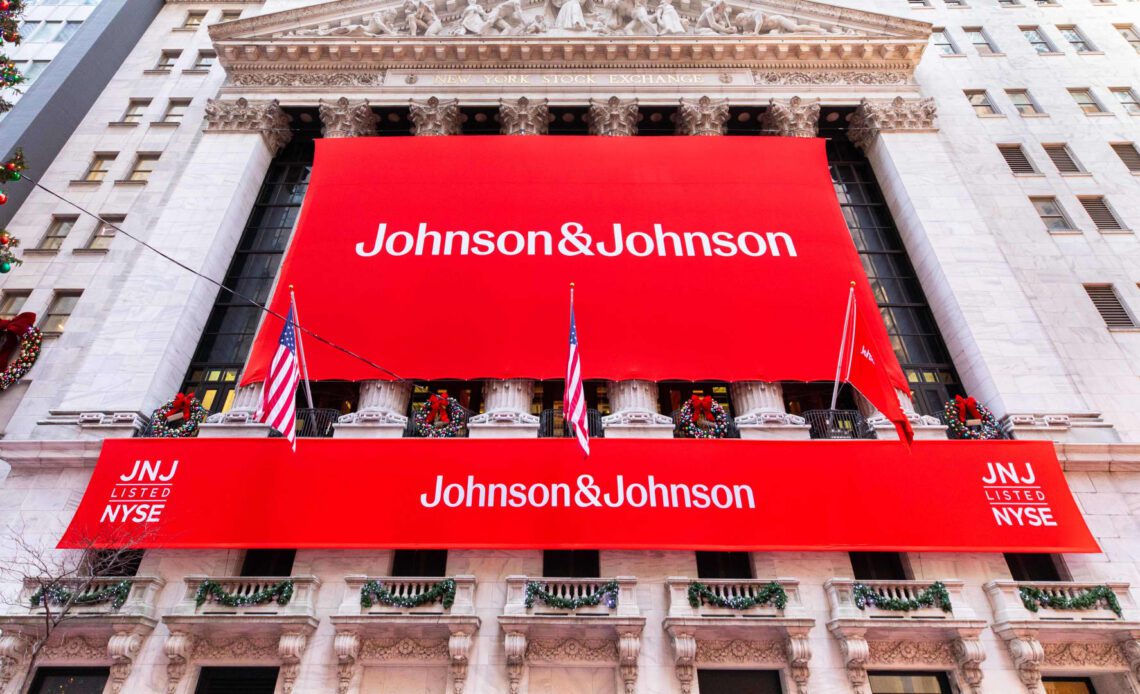The New York Stock Exchange welcomes Johnson & Johnson (NYSE: JNJ) to the podium.
NYSE
Big pharmaceutical companies such as Bristol Myers Squibb, Merck and Johnson & Johnson face a looming threat that will put tens of billions of dollars in sales at risk between now and 2030, as blockbuster drugs will tumble off a so-called patent cliff.
That refers to when a company’s patents for one or more leading branded products expire, which opens the door for competitors to sell copycats of those drugs, often at a lower price. That typically causes revenue to fall for drugmakers and costs to drop for patients, who can access more affordable options.
Certain drugmakers appear well prepared to offset some losses from upcoming patent cliffs, as they build their drug pipelines and ink acquisitions or partnerships with other companies, some Wall Street analysts said.
Patent cliffs are an unavoidable issue for pharmaceutical companies. They must replenish older top-selling drugs with new ones that they hope will not just sustain their sales, but also grow them.
The loss of exclusive rights on a drug can affect companies differently, depending on how much of their sales they get from the product or what type of treatment it is. Some drugs facing patent expirations will also be subject to the Biden administration’s Medicare drug price negotiations, a policy that may further threaten the companies’ revenues.
The top 20 biopharma companies have $180 billion in sales at risk from patent expirations between now and 2028, according to estimates from EY.
“It does differ by company at this stage, and I think there are a number of products in the ’25, ’30 timeframe that will be major growth drivers for large biopharma companies … but all in all, there are plenty of companies that have revenue holes to plug,” William Blair & Company analyst Matt Phipps told CNBC.
Some top drugs set to lose exclusivity
Merck’s Keytruda is an immunotherapy that treats melanoma, head and neck, lung and other certain types of cancers.
- Key patent expirations: 2028
- 2022 sales: $20.94 billion
- Percentage of company’s total 2022 sales: Roughly 36%
- Estimated future revenue: $14.9 billion in 2030, according to Guggenheim estimates.
Bristol Myers Squibb’s Eliquis is a blood thinner used to prevent clotting, to reduce the risk of stroke.
- Key patent expirations: 2026 to 2028
- 2022 sales: $11.79 billion
- Percentage of company’s total 2022 sales: Around 25%
- Estimated future revenue: $478 million in 2032, according to…
Click Here to Read the Full Original Article at Top News and Analysis (pro)…


